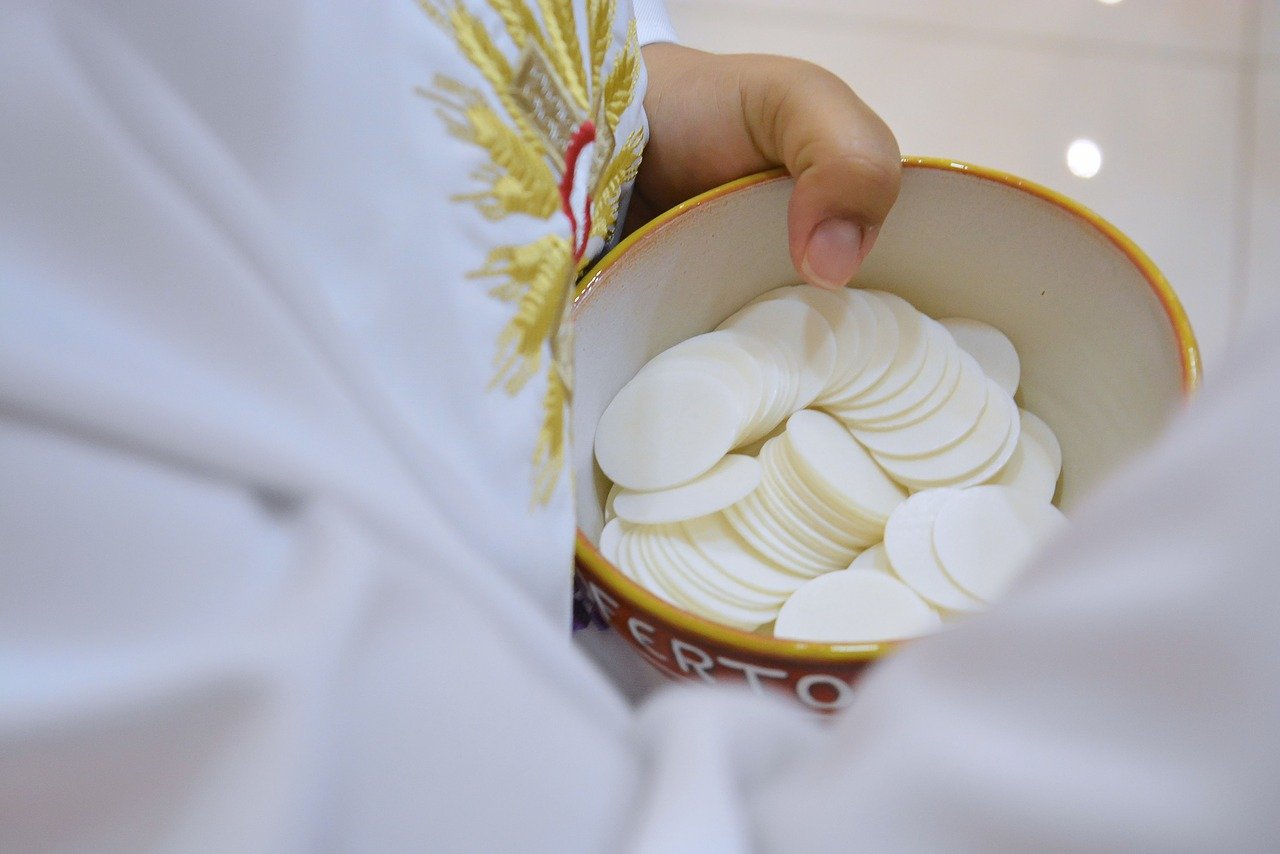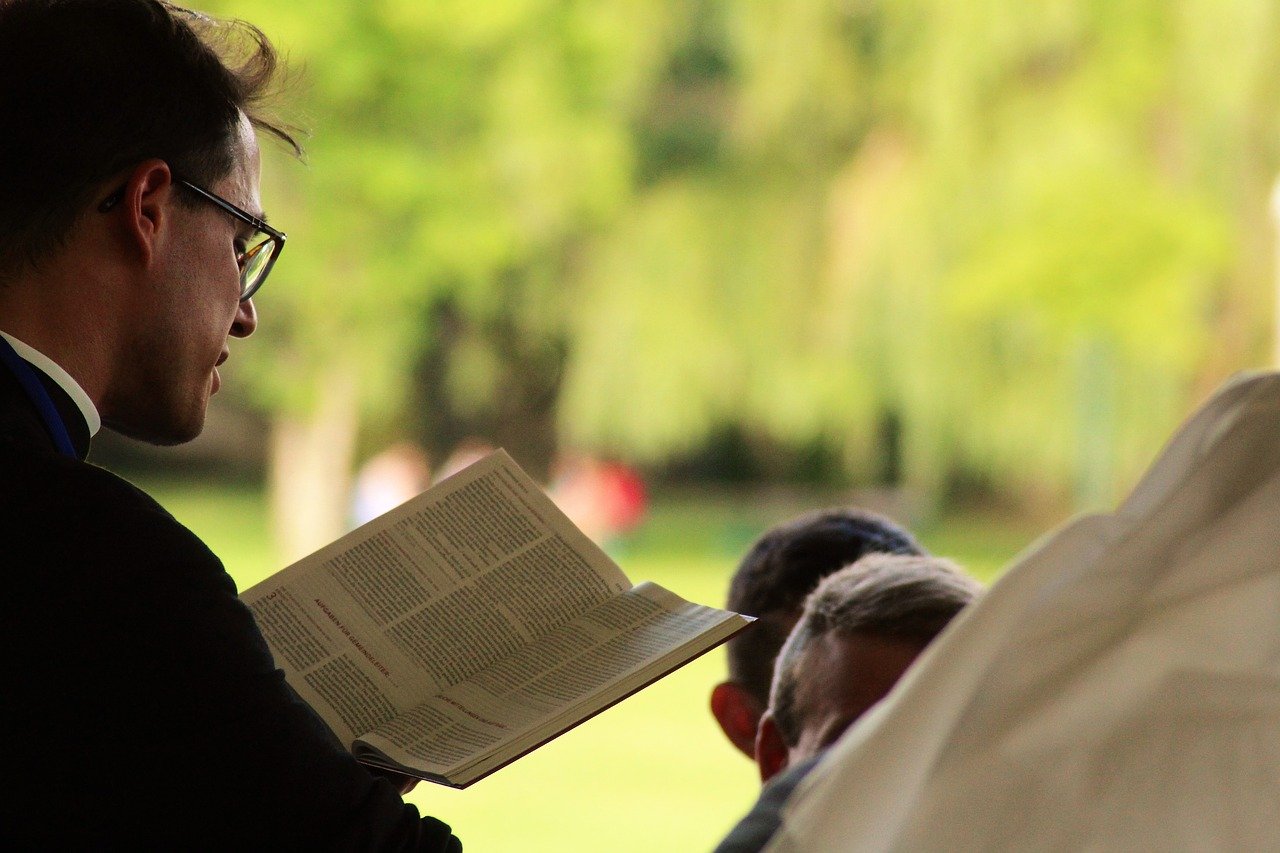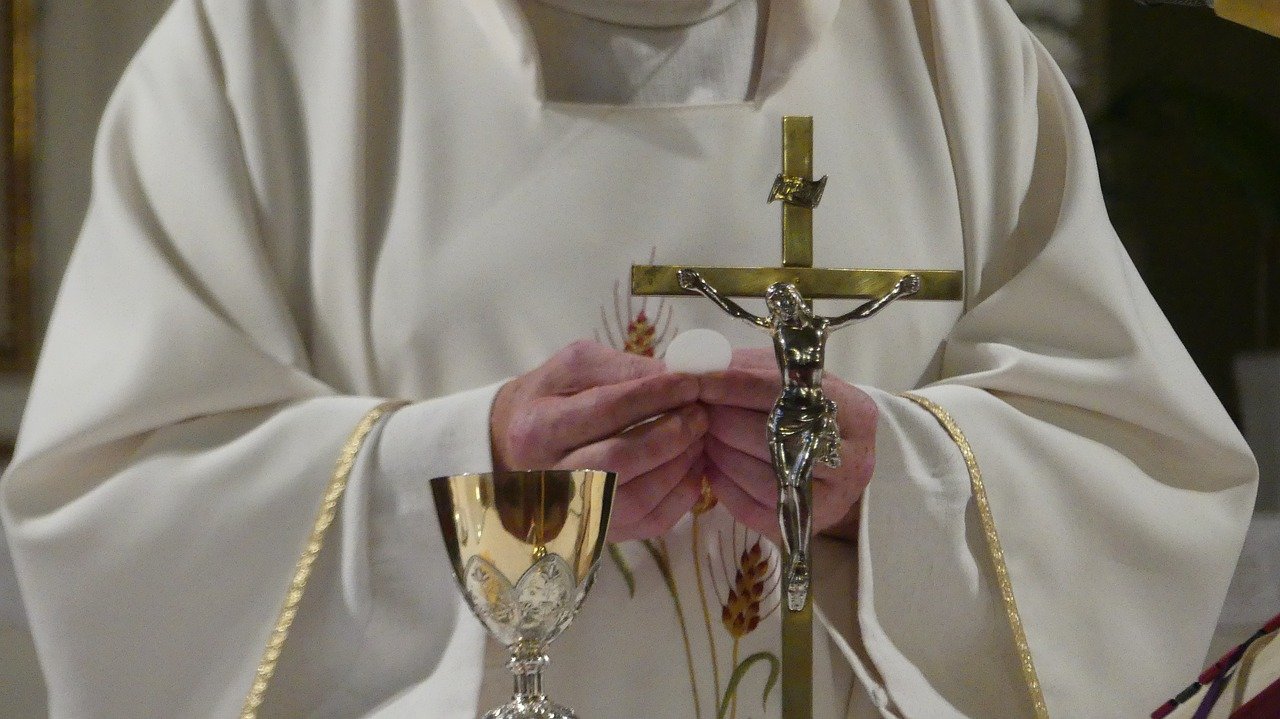 Catholics receive communion" width="1280" height="854" />
Catholics receive communion" width="1280" height="854" />Catholics (and most other Christians) participate in the Holy Communion to remember the body and blood of Jesus and to signify the New Covenant. Can divorced Catholics receive communion though?
What You'll Learn Today
 Catholics receive communion" width="1280" height="854" />
Catholics receive communion" width="1280" height="854" />
It was Jesus who set out the ordinance in Mathew Chapter 26.
“And as they were eating, Jesus took bread, and blessed it, and brake it, and gave it to the disciples, and said, Take, eat; this is my body. And he took the cup, and gave thanks, and gave it to them, saying, Drink ye all of it; For this is my blood of the new testament, which is shed for many for the remission of sins.”
Because Communion is such a sacred act, the Catholic Church has strict rules regarding who can partake in it. The most important requirement is that you are a Catholic. If you are not a Catholic, you cannot engage in the Eucharist (with some exceptions).
Many people also assume that divorce stops you from receiving communion. That’s not the case.
The Catholic Church does not recognize divorce. Divorce is a civil process separate from the church.
Instead, the church has something called annulment. Under a specific set of conditions, you can request an annulment that allows you to separate from your spouse and remarry if you wish.
If you are divorced, it doesn’t matter to the Catholic Church. In the eyes of the Code of Canon Law, you are still married. Therefore, you can receive communion.
If you are unsure, you can ask the Father at your catholic Church. They likely will tell you it’s okay. However, depending on your current situation, you may not be eligible for communion.

If you are divorced and have not gone out with anyone else, you can receive communion. However, if you’ve been dating or have already remarried, you cannot participate in communion since, in the church’s eyes, you are engaging in adultery.
Remember that your civil divorce doesn’t count within the church. As per catholic law, you are still married. So by going out with or marrying someone else, you are being unfaithful to your partner.
Adultery is considered a mortal sin in the Catholic Church.
A mortal sin is any grave sinful act that’s committed intentionally with full knowledge of its seriousness. The bible lists some grave sins in various books including 1 Corinthians Chapter 6:
“Or do you not know that the unrighteous will not inherit the kingdom of God? Do not be deceived: neither the sexually immoral, nor idolaters, nor adulterers, nor men who practice homosexuality, nor thieves, nor the greedy, nor drunkards, nor revilers, nor swindlers will inherit the kingdom of God.”
The Catechism of the Catholic Church (CCC 2380) also considers adultery a sin.
Now, you can still receive communion if you go to confession for your sin. But this applies if you’ve had sex with someone else since your divorce. If you have remarried, you are living in sin all the time, so a confession wouldn’t help.

If you are divorced but have not had sex with anyone, you don’t need to do anything. You have not committed a mortal sin and can receive communion.
However, if you plan to start dating or want to get married, consider getting an annulment first. The Vatican has made it easier and faster to get an annulment nowadays.
Getting an annulment will let you remarry without going against the Catholic law.
If you have had sexual relations with someone after divorce, seek confession and then you can receive communion.
If you remarried after divorce, you have two options. You can seek a civil divorce such that you are no longer committing adultery (in the eyes of the church). You can then go to confession to confess your sin and become eligible for communion.
The other, easier, option is to seek annulment for your previous marriage. That way, you will not be committing any sin by staying in your current marriage. Go to confession and then you can receive communion.
My annulment of marriage was 40 years ago. I have been to confession many times. A retired Deacon told me I can not receive communion. I had forgotten about the whole ordeal.
I have gone through Ministry Formation and taken classes at a local Catholic College. I did teach RCIA. Reply
If marriage is sacred in our Catholic religion, why have an annulment? Isn’t that as bad as committing adultery, because I feel that we as Catholics shouldn’t always seek annulments when marriages don’t work out. I’ve always been told that once you get married through the church you’ll always be married. Annulment makes no sense to me…maybe what I’m about to say probably has nothing to do with marriage and is off topic, but if I get pregnant and I don’t want to keep the baby AT ALL, I can just get an abortion as many times as I want and use abortion every time I get pregnant. Isn’t annulment a way to draw Catholics away from God’s teaching(s)? I’m totally against both annulment and abortion as well divorce. Reply
Bernie BartonSacramental marriage carries a bevy of qualifications to be considered valid, from its ability to be consummated to a desire on both parts for children to simply an honest intent of both to be faithful, with many more in between. The annulment option and investigation process recognizes that a recorded Church marriage “may not have checked some of the boxes” needed for legal validity, thus rendering it “null and void,” as never in actual effect. The Church has a strong desire for members to be in true and healthy marriages and tries to reasonably ascertain beforehand that those qualification boxes are all checked, but sometimes it becomes evident they simply weren’t, and that there wasn’t a true marriage in the eyes of God. Annulment doesn’t dissolve marriage nor find fault for its failure, rather, it affirms that one never took place to begin with. Undertaking that process in past years has been made variously arduous to the point of discouraging its legitimate application, but has become more approachable in more recent times. Abortion is not analogous in that while some marriages can be found not to have truly existed, every conceived person, in or out of marriage, has always existed and always will. Reply
This site uses Akismet to reduce spam. Learn how your comment data is processed.
Sam is a founder and editor of Catholics & Bible. In personal life he is a proud father of a boy and twin girls. He believes it is more important than ever before to help people find a genuine faith. Living a life dedicated to God makes as much sense as the sunshine in our world.